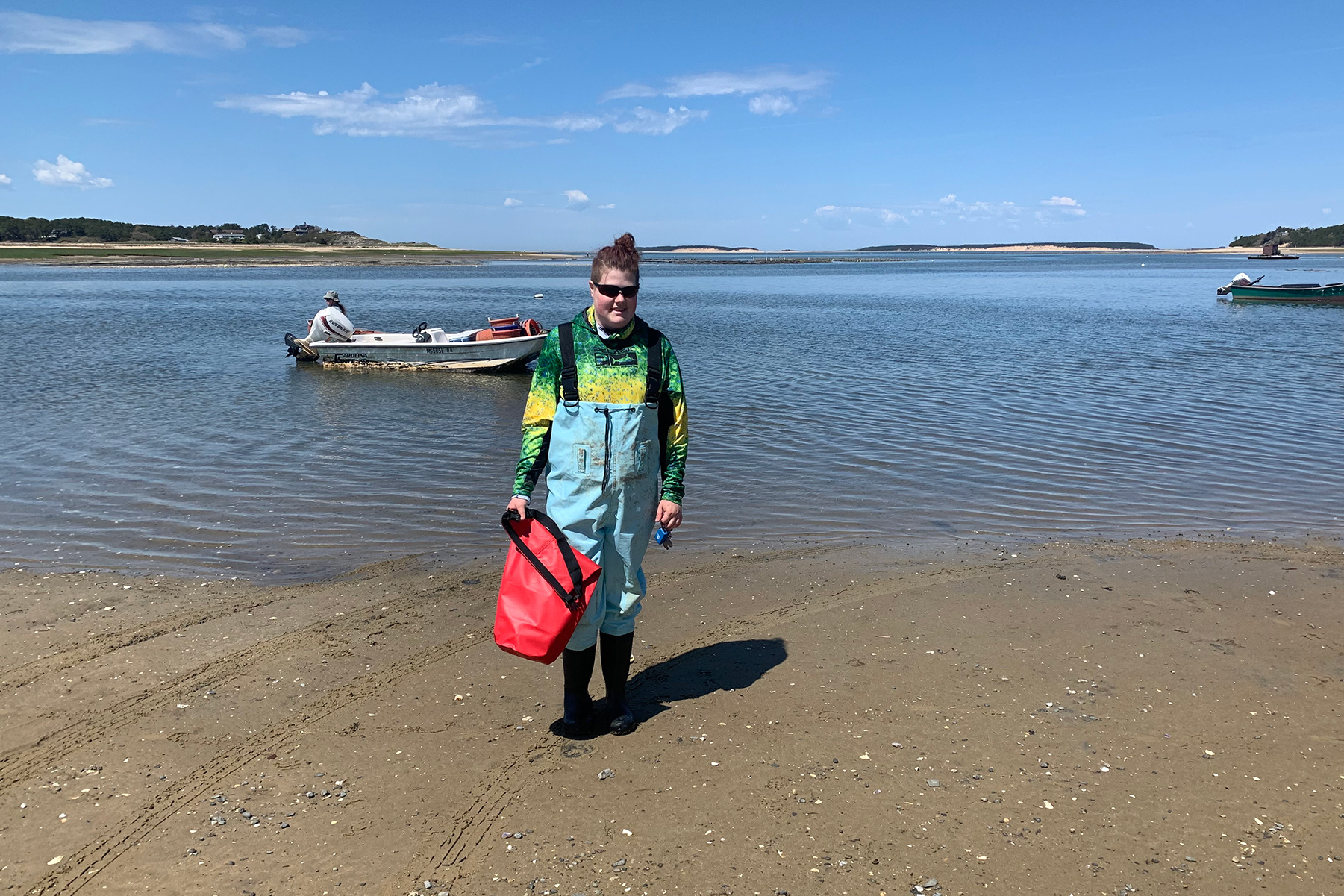Junior Kyra Brimdyr is spending her summer knee-deep in pursuit of her passions – working on an oyster farm on Cape Cod. Her internship at Avery Oyster Company in Wellfleet, Massachusetts, gives Kyra, who is studying marine biology at Mitchell, an opportunity to exercise her interest and build skills as both a biologist and environmentalist, as she sees the interconnectedness of the natural environment close up.
“It is amazing to work with the oysters and learn about their life cycle and the process of growing them. I am working hands on with many different tools and learning new terms related to the field. These oysters are sold to a local restaurant, so I have to know exactly what to look for in the oyster, like how big the oyster and the cup, or bottom, has to be. The bigger the cup and the bigger the oyster, the better.”
Kyra sorts through trays of oysters, usually 10 to 20 trays per day, to pull out the big oysters, making room for the smaller ones to grow.
“On the farm, there are rows and rows of oyster trays, stacked up three to four trays high. The water from the tide gives nutrients for the oysters to grow, so the trays have to be positioned to make sure water goes into the trays. There is a science to it. Certain nutrients in the ocean make the oysters grow, and it’s a process to make sure they have the right amount.”
Her biggest challenge is lifting the heavy trays.
“Big oysters get heavy! I have moved from lifting one tray to two trays. Showing others that I am able to do the hard work that they are doing is rewarding.”
Lessons learned about natural habitats in her ecology class at Mitchell come to life in Kyra’s internship, and she understands the importance of keeping the environment healthy, for mollusks, like oysters, and other marine life alike.
“Since I was younger, marine animals have been a passion of mine, and I liked having experiences working with them. I think it’s important for people to see other people caring about something. An example is a whale watch. If you see a whale washed up on the shore, you know something is not right. Whale watches educate people about the whales, what is going on in the environment and what can be done about it.”
Kyra says that the dead stock and shells at the oyster farm go to someone who uses them for other purposes, such as teaching tools about different types of oysters and shell identification.
“Saving the shells is doing something good for the environment. As a marine biologist, you have to think about the impact of what you are doing before you do it.”
